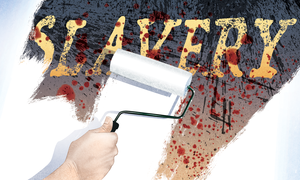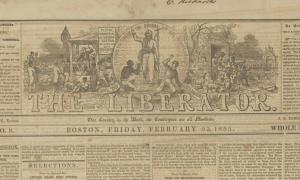721 Results
Lies My Bookshelf Told Me: Slavery in Children’s Literature

Signing of Voting Rights Act of 1965 (Transcript)
Questions that Come Up
Teaching Hard History With Primary Sources

Protest Is Patriotic
This year, the Fourth of July arrives amid protests against racism and police brutality toward Black Americans and a focus on the role white supremacy has always played in the United States. As these resources show, this holiday and its symbols are tied to a long tradition of protest and demands that our nation make good on its promise of freedom for all.
- Pledge Laws: Controlling Protest and Patriotism in Schools
- What Is Your American Flag?
- Celebrating Freedom Means Celebrating Defiance
Remember the March on Washington
As we remember the March on Washington for Jobs and Freedom of 1963, it’s critical not to whitewash this history. Contextualize the campaign and the struggle associated with it, including the impact of the march’s organizer, Bayard Rustin—an openly gay Black man. That also includes complicating the event’s most iconic figure, Dr. Martin Luther King, and his famous “I Have a Dream” speech. These resources can help.
- Ten Things to Know About the March on Washington
- Gary Younge: Heroes Are Human
- Teaching About King’s Radical Approach to Social Justice
Celebrating Juneteenth
Juneteenth, celebrated June 19, marks the day enslaved Texans learned they were free in June of 1865. While the history of the holiday includes the injustice of enslavement, Juneteenth should also be understood in the context of Black people’s fight for justice and freedom. As Staff Writer Coshandra Dillard notes, “Students, particularly Black students, can find empowerment in the jubilant celebrations of culture, activism and the humanity of a people.”
- Teaching Juneteenth
- Happy Juneteenth!
- What to the Slave Is the Fourth of July?